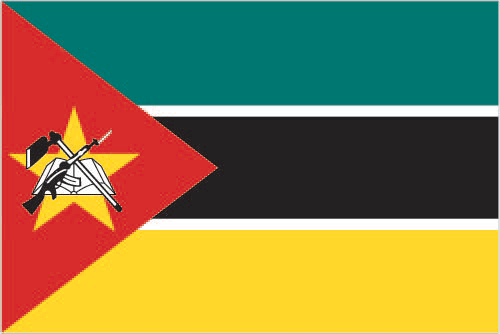
Almost five centuries as a Portuguese colony came to a close with independence in 1975. Large-scale emigration, economic dependence on South Africa, a severe drought, and a prolonged civil war hindered the country's development until the mid 1990s. The ruling Front for the Liberation of Mozambique (Frelimo) party formally abandoned Marxism in 1989, and a new constitution the following year provided for multiparty elections and a free market economy. A UN-negotiated peace agreement between Frelimo and rebel Mozambique National Resistance (Renamo) forces ended the fighting in 1992. In December 2004, Mozambique underwent a delicate transition as Joaquim CHISSANO stepped down after 18 years in office. His elected successor, Armando Emilio GUEBUZA, promised to continue the sound economic policies that have encouraged foreign investment. President GUEBUZA was reelected to a second term in October 2009. However, the elections were flawed by voter fraud, questionable disqualification of candidates, and Frelimo use of government resources during the campaign. As a result, Freedom House removed Mozambique from its list of electoral democracies.
coal, titanium, natural gas, hydropower, tantalum, graphite
arable land: 6.51%
permanent crops: 0.25%
other: 93.24% (2011)
24,692,144
country comparison to the world: 51
note: estimates for this country explicitly take into account the effects of excess mortality due to AIDS; this can result in lower life expectancy, higher infant mortality, higher death rates, lower
African 99.66% (Makhuwa, Tsonga, Lomwe, Sena, and others), Europeans 0.06%, Euro-Africans 0.2%, Indians 0.08%
Roman Catholic 28.4%, Muslim 17.9%, Zionist Christian 15.5%, Protestant 12.2% (includes Pentecostal 10.9% and Anglican 1.3%), other 6.7%, none 18.7%, unspecified 0.7% (2007 est.)
Emakhuwa 25.3%, Portuguese (official) 10.7%, Xichangana 10.3%, Cisena 7.5%, Elomwe 7%, Echuwabo 5.1%, other Mozambican languages 30.1%, other 4% (1997 census)
definition: age 15 and over can read and write
total population: 56.1%
male: 70.8%
female: 42.8% (2010 est.)
Maputo
republic
25 June 1975 (from Portugal)
Independence Day, 25 June (1975)